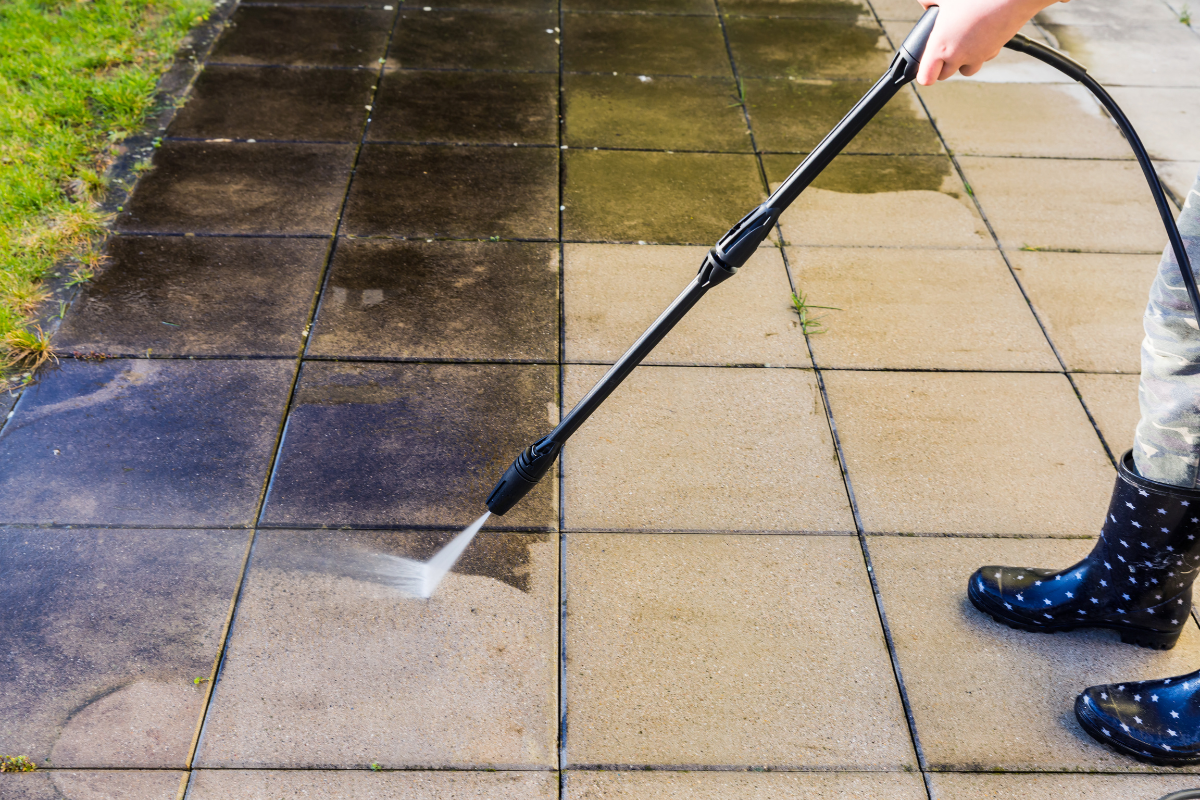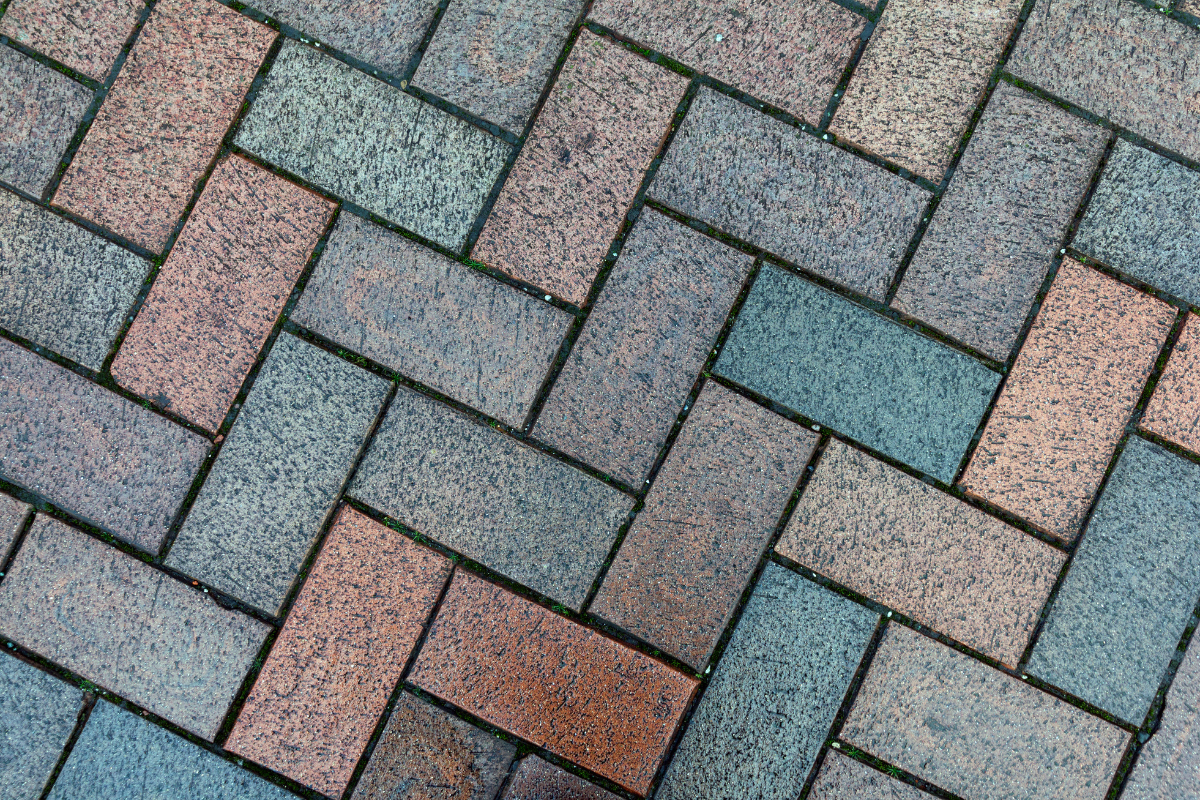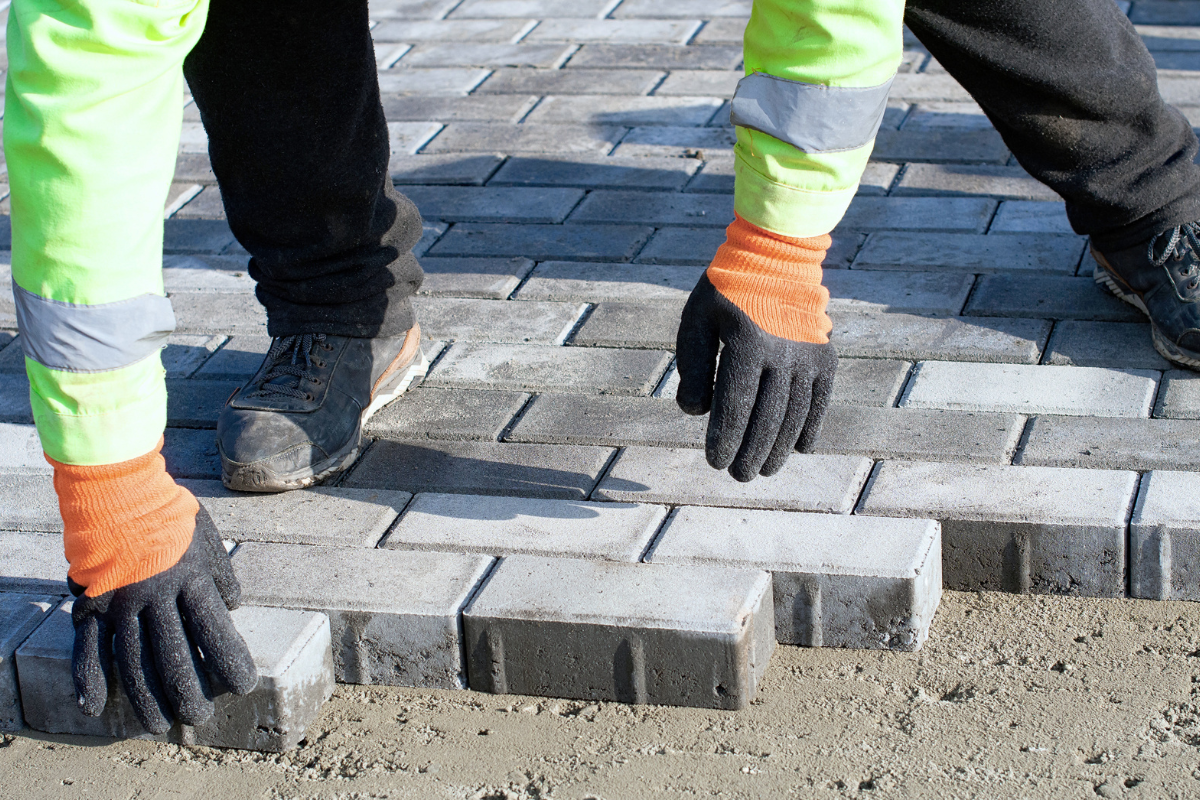
How to Choose the Right Contractor for Paver Sealing Near Me


Paver sealing looks simple from a distance. A contractor arrives with a trailer, pressure washer, and a few buckets, then the driveway looks glossy by afternoon. What you do not see is the chemistry, surface prep, joint stabilization, and timing that determine whether those pavers will still look good two summers later, or whether you will face whitening, peeling, or sand washout after the first heavy rain. Choosing the right contractor for paver sealing takes more than a quick search for paver sealing near me and a low bid. It requires a bit of homework, a couple of smart questions, and a sense of what quality work really entails.
I have walked plenty of driveways with owners who regretted a fast, cheap seal. Most problems trace back to two issues: poor cleaning and the wrong paver sealer for the conditions. Add Florida sun, irrigation overspray, and a slab that never fully dries, and you have a recipe for failure. The good news is that these risks are manageable when you know what to ask and what red flags to avoid.
What makes paver sealing succeed
A good seal does three things. It locks joint sand so stormwater does not blast it out, it blocks UV and water from entering the stone, and it resists stains from tires, oils, and leaf tannins. If you live in or near Lutz, for example, tropical rains, sprinklers, and pool decks create constant moisture exposure. Proper paver cleaning Lutz residents need is not just a vanity step, it is the foundation for adhesion. I have seen crews try to seal over damp joints at 10 a.m., then the sun bakes the top while moisture pushes out from below. A week later the homeowner sees milky blotches. Avoidable with patience and the right system.
Pavers vary as much as the contractors who maintain them. Tumbled travertine around a pool does not behave like concrete pavers on a front drive. A film-forming acrylic works differently than a penetrating silane-siloxane. Some paver sealer products darken and enhance color, others keep a natural matte. The best contractor adjusts the process to your surface and your goals, then explains the trade-offs without pushing a one-size-fits-all product.
The anatomy of a proper wash and seal
Watch a complete job once, and you can tell who knows the craft. The day begins with an inspection. A pro notes efflorescence blooms, rust, tire marks, mold shading, and polymeric haze. They look for drainage paths and low spots that hold water. They test a small area with the chosen cleaner. Only after that do they fire up the equipment.
For driveway pressure washing near me searches, you will see ads for high-PSI blasting. High pressure without skill etches pavers, especially clay or softer concrete units. The better approach uses the right tip, the right distance, and a surface cleaner to keep the pattern even. Many professionals use a two-step method. First, a detergent or degreaser for oils and tire marks, sometimes a mild acid wash to open the pores and remove efflorescence, followed by a thorough rinse to neutralize. Second, a controlled pressure pass that removes embedded grime without chewing the surface.
After cleaning, the surface has to dry. Not damp to the touch, actually dry enough that moisture is not trying to escape while the sealer is curing. In Florida humidity that often means a next-day return, particularly in shaded areas or after heavy washing. A contractor eager to finish in one day with a blower and crossed fingers is rolling the dice with your money.
Once dry, the crew sweeps in sand, ideally polymeric or a high-quality angular sand compatible with the sealer. Joints must be topped off paver cleaning to the correct depth. Too low, and water will dig out the sand. Too high, and sand will bridge the chamfer and flush out easily. The last step is sealer application in thin, even coats. A sprayer lays it on, a back-rolling step helps even it and push it into pores. Two light coats are generally safer than one heavy coat, especially for film-formers.
Film-forming vs penetrating sealers, and where they fail
Most calls I get about failures start with two words: whitening and peeling. Whitening happens when trapped moisture or efflorescence gets under a non-breathable film. Peeling is the next stage of the same problem, or it follows heavy over-application. A penetrating sealer that soaks into the substrate breathes better, so it is less prone to whitening, but it will not give that wet, enhanced look or joint stabilization. Film-forming acrylics or urethanes can enhance color and stabilize joints, but they need careful prep and thin coats.
If you park vehicles daily on a hot driveway, a high-solids acrylic can soften and show tire marks unless it is cured fully and applied correctly. On pool decks, a slick sealer turns a safety hazard fast. Good contractors balance sheen, slip resistance, and durability. They might add an anti-slip additive in the second coat for a pool surround, or adjust to a lower gloss in a sun-baked driveway. When you ask about products, look for brand familiarity and specifics: solids percentage, expected coverage rate per gallon, and cure times. Vague answers are a warning sign.
Local conditions shape the right choice
The “right” paver sealer in Arizona is not necessarily right in coastal Florida. Salty air, irrigation with hard water, and daily afternoon storms place extra stress on film-formers. In areas like Lutz and Tampa Bay, a breathable top-tier acrylic or a hybrid system often outlasts bargain-store sealers. Where iron-rich well water hits the edges, rust removers and a sealer with strong stain resistance help reduce orange blotching. On north-facing walkways that never fully dry, penetrating sealers avoid moisture trapping, though you trade off the look and joint lock.
If you are searching for pressure washing service providers and see the same crew offering roof soft washing, paver sealing, and house washing, ask how they adjust for your microclimate. The right answer cites dew points, shade hours, and whether your pavers sit on a slab or sand set. The wrong answer speaks only in brand names and gloss levels.
What to ask during estimates
The estimate visit tells you almost everything you need to know. A contractor should walk the entire area, note sandboxed corners, loose joints, settled areas, and stains. They should explain the sequence clearly: washing and sealing in separate stages, drying time, sand application, then coats. Expect measurements and a written scope that includes product names and coverage estimates.
Here is a compact checklist worth using when you meet candidates.
- What cleaners will you use for my stains, and how will you neutralize them before sealing?
- Which sealer do you recommend for my paver type, and why that chemistry instead of alternatives?
- How long will drying take between washing and sealing, and how will you confirm moisture levels?
- What is your plan for joint sand selection, application depth, and compaction method?
- What maintenance schedule do you suggest, and how do you handle whitening or adhesion issues under warranty?
If they can answer these questions in plain language and without dodging details, you are closer to selecting the right partner.
Reading the quote like a pro
Not all quotes are written with the same clarity. Look for itemized steps and quantities rather than a lump sum and a promise. A strong proposal lists square footage, pre-treatment specifics, pressure washing method, sand type, sealer brand and model, estimated gallons and coats, and cure time before foot and vehicle traffic. It should explain whether stripping of old sealer is included if needed, because that is a separate, labor-heavy process.
Many homeowners miss the coverage line. High-quality sealers often claim coverage ranges between 100 and 200 square feet per gallon per coat, depending on porosity. If your 1,000 square foot driveway is quoted with two coats and two gallons total, that math does not add up. Shorting material is a common way to cut costs and it shows in performance. The inverse can be just as bad. If a contractor outlines Sealer stripping pavers 10 gallons for the same driveway and promises a thick, durable layer, expect that to trap moisture and peel.
The role of stripping and when to insist on it
If your pavers already have a failing film, you will likely need a strip. Stripping is messy, slower, and more expensive than sealing clean pavers, which is why some contractors push to just recoat. Recoating over a compromised film is a temporary fix. You might get a few months of gloss before the old failure pattern telegraphs through. I once saw a homeowner go through three recoats in two years, each time hoping the bubbling would stop. When we finally stripped it down to clean paver, let the surface dry for a full 48 hours, and switched to a breathable sealer with thinner coats, the problem disappeared.
A professional willing to recommend stripping when it is appropriate is probably more interested in long-term results than short-term revenue. Ask how they confirm whether stripping is necessary. A simple patch test with xylene on acrylic films reveals whether the existing layer can be re-melted and bonded or whether it has lost integrity.
Why insurance and licensing matter more than you think
Pressure washing and sealing look low risk until a blown fitting sprays chemical onto a car finish or a slippery deck sends a guest to urgent care. Confirm general liability insurance and, where required, workers’ compensation. In some municipalities, paver sealing falls under broader pressure washing or specialty surface maintenance categories. Licensing may not be complex, but having it signals that the contractor works above board. Also verify that they follow environmental rules about wastewater. Proper capture or diversion prevents runoff laden with cleaners from reaching storm drains.
Timing, weather windows, and homeowner prep
Weather sets the schedule. Humidity above 70 percent, temperatures below 50 or above 95, and dew points near ambient all affect cure time. A pro reads the forecast, not just the clock. You may be asked to turn off irrigation 24 to 48 hours before and after sealing, move vehicles, and keep pets inside while the area cures. This coordination matters. I have seen fresh sealer ruined in minutes by a timer-driven sprinkler line.
Expect a conversation about sun exposure. South-facing drives heat up fast, which can flash-dry a solvent-based sealer before it flows out, leaving lap lines. Shade creates slower drying, which demands more patience between coats. A contractor who talks about staging the work around shade patterns or working a section early or late in the day understands these nuances.
Costs you can expect, and what drives them
Prices vary by region, access, and scope. For a basic wash and seal on a straightforward, clean concrete paver driveway, you might see a range that clusters between moderate and high triple digits per thousand square feet. In areas with higher labor and material costs, or where stripping and remediation are needed, that range climbs. The cost drivers are square footage, condition of the existing surface, product choice, and how many trips are required to allow for drying and curing.
Beware of bids that look too good compared to the pack. The most common ways to cut corners are skipping chemical pretreatment, rushing drying time, using low-solids paver sealer, or applying one heavy coat instead of two thin ones. All of these can work for the contractor’s schedule while pushing risk onto the homeowner.
Maintenance: what you can do and what to hire out
A good sealing job does not end with the last coat. Your pavers still need care. Regular rinsing, quick cleanup of oil or leaf stains, and keeping irrigation aligned away from the driveway edges will extend the life of the sealer. Where oak leaves or palm berries stain, keep a mild detergent on hand and address spots before they bake in. Avoid harsh degreasers unless your contractor confirms they will not strip the sealer.
Expect a recoat window in the two to four year range for film-formers in sunny, high-traffic areas. Penetrating sealers may go longer, though they protect differently. If you notice dulling, sand loosening in joints, or water soaking rather than beading, it may be time for a maintenance visit. When in doubt, invite a reputable pressure washing service back for an inspection rather than guessing.
How to vet reviews and references without getting misled
Online reviews help, but read beyond star counts. Look for specifics: mentions of drying time, how stains were handled, whether the crew returned after rain, and how the finish looked months later. Short, generic praise can be genuine, but details prove experience. If you find paver cleaning Lutz or nearby neighborhoods with repeat mentions of the same company, that pattern carries weight.
Ask for two references: one recent, and one more than a year old. Call them. A quick chat often reveals whether the finish held up and how the contractor handled minor issues. Every contractor runs into surprises. The best are measured by how they respond.
Red flags worth walking away from
A few signs should stop you in your tracks. If a contractor recommends sealing the same day as washing without mentioning moisture checks, that is a risk. If they cannot name the paver sealer they will use, or if the brand is a no-label chemical in a generic drum, move on. If they pressure you with today-only pricing, or if the price drops drastically when you hesitate, the margin had to come from somewhere.
Be wary of glossy, slick finishes on pool decks without a plan for slip resistance. Watch how they handle test spots. A willingness to demonstrate on a small area shows confidence and gives you a preview of color enhancement and sheen.
Where pressure washing fits into the bigger picture
Paver sealing sits beside other maintenance tasks: roof cleaning, house washing, and concrete care. If you hire a full-service pressure washing company, make sure their washing and sealing teams communicate. For example, if you plan to soft wash a roof a month after sealing, overspray can strip or stain the fresh finish. Sequence matters. A thoughtful contractor will schedule roof, house, and paver work to protect each surface, often roof first, then walls, then pavers last after everything above them is clean.
This is one place where the convenience of a one-stop pressure washing service can pay off. Coordination prevents conflicts and saves you repeat cleanups. Just ensure that their paver crew brings the same level of specialization as their washing team.
A quick path to a sound choice
If the process feels overwhelming, narrow your shortlist to two or three contractors who:
- Walk the job and speak clearly about your specific pavers, stains, and drainage.
- Put product names, coverage, coat counts, and dry times in writing.
From there, let your site visit impressions guide you. A contractor who respects your time, explains trade-offs, and offers a warranty with specifics about what is covered has earned trust. You are hiring judgment as much as muscle.
A closing note on expectations
Even the best sealing job is not bulletproof. Hot tires can mark a film until it hardens fully. Irrigation water heavy with iron can leave orange edges that need periodic cleaning. Heavy shade will slow drying and occasionally lead to slight hazing in cold snaps. A good contractor sets these expectations up front and returns to address minor issues without excuses. When you partner with someone who treats your driveway like their portfolio piece, you will see it in the finish and in how well it holds up across seasons.
If you start your search with careful questions, understand the basics of cleaning and sealer chemistry, and choose the team that plans around your site’s realities, your pavers will look sharp and stay protected. Whether you are lining up paver sealing near me for a new install or rescuing a faded, patchy drive, the right expertise turns a weekend shine into long-term value.
Bulletproof Pavers
Address: 1523 Green Meadow Dr, Lutz, FL 33549
Phone: (813) 401-0693